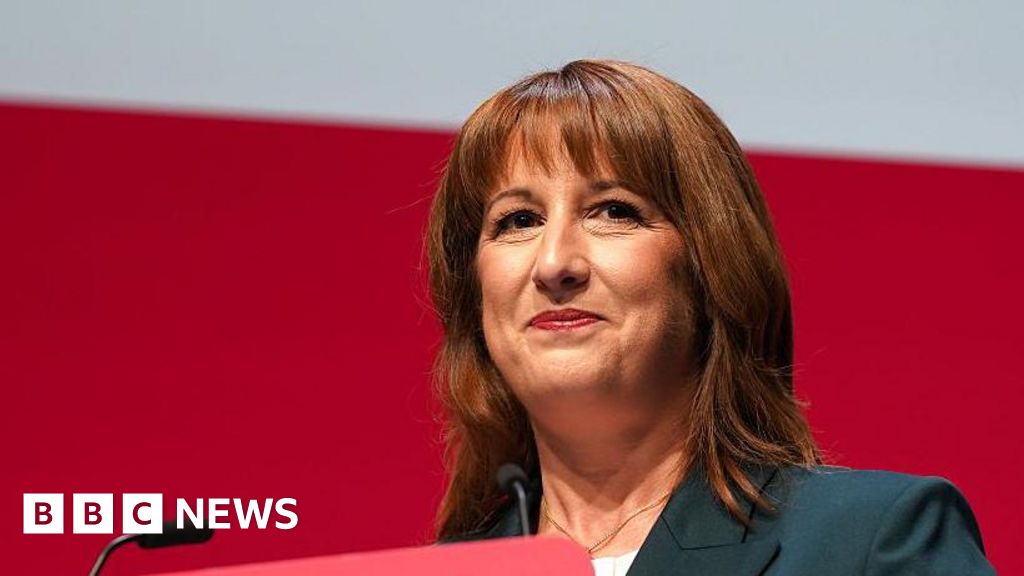The chancellor has vowed to “defy” gloomy forecasts for the UK economy after it emerged the government is facing a bigger-than-expected hole in the public finances.
The BBC understands the official forecaster, the Office for Budget Responsibility (OBR), is set to downgrade the UK’s productivity performance – a measure of the output of the economy per hour worked.
The change to the key measure could lead to the chancellor facing a £20bn gap in meeting her tax and spending rules, adding to expectations taxes will be hiked at the Budget next month.
Rachel Reeves said she would not “pre-empt” any downgrade by the OBR, but was “determined that we don’t simply accept the forecasts but we defy them”.
The chancellor addressed the emergence of a the UK’s productivity being downgraded for the first time when writing in the Guardian newspaper on Tuesday.
“Those conclusions [by the OBR] will be delivered at the budget next month and I am not going to pre-empt them. But I am going to be candid now that the productivity performance we inherited from the previous Conservative government and since the financial crisis has been too weak,” Reeves said.
Ahead of the Autumn Budget in November, speculation is growing what choices Reeves will make on tax and public spending.
She is widely expected to increase taxes following a gloomy economic forecasts and a series of U-turns on cuts to welfare spending, which have made it more difficult for her to meet her self-imposed borrowing rules.
After announcing tax rises of £40bn in her previous Budget last year, which included a hike in the amount employers are required to pay in National Insurance Contributions, Reeves said she was “not coming back” for more tax rises.
But economists at the Institute for Fiscal Studies (IFS) have calculated a shortfall of £22bn in the public finances and suggested Reeves will “almost certainly” have to raise taxes.
A downgrade to the UK’s productivity performance could see that figure grow higher.
Reeves in recent days has opted to go on the offensive against the expected negative forecasts and has sought to pin the current economic situation in the previous Conservative government along with Brexit and the Covid pandemic.
“Austerity, a chaotic Brexit and the pandemic have left deep scars on the British economy that are still being felt today,” she wrote.
“If productivity is our challenge, then investment is our solution,” she added, listing pledges to invest in the NHS, roads, rails, energy and defence in order to “get Britain building”.
Reeves said there could be “no return to austerity”.
If she opts not to cut public spending or borrow more money, then tax rises are the likely option in order for her to remain within her fiscal rules, which are designed to maintain credibility with the global financial markets the UK borrows money from.
The government has made growing the economy its main goal in an effort to improve living standards, but growth has remained sluggish since it won power.
Some have blamed Reeves’s tax rises in the previous Budget, such as the increase in National Insurance for employers, for putting off business investment and job creation.
Many household budgets also remain under pressure with the cost of food and energy rising. This week, the UK’s main surpermarkets warned warned food prices could rise even further if higher taxes were to be imposed on the sector.
The OBR is understood to have downgraded forecast for productivity by 0.3 percentage points.
The IFS has calculated that for every 0.1 percentage point downgrade in the productivity forecast, government borrowing would increase by £7bn in 2029-30 – meaning a 0.3 point cut could add as much a £21bn to the Budget hole.
However, there are several other moving parts in the Budget which may soften the blow for the chancellor, such as the decline in the interest rates paid on government debt.
Reeves said she accepted that “our country and our economy continue to face challenges”.
“I don’t need a spreadsheet to tell me that too many working people in Britain feel the economy is unfair and does not work for them, with the cost of living still bearing down on family budgets,” she added.
“These decisions – and the decisions I will take at the Budget – don’t come for free and they are not easy, but they are the right, fair and necessary choices.”

